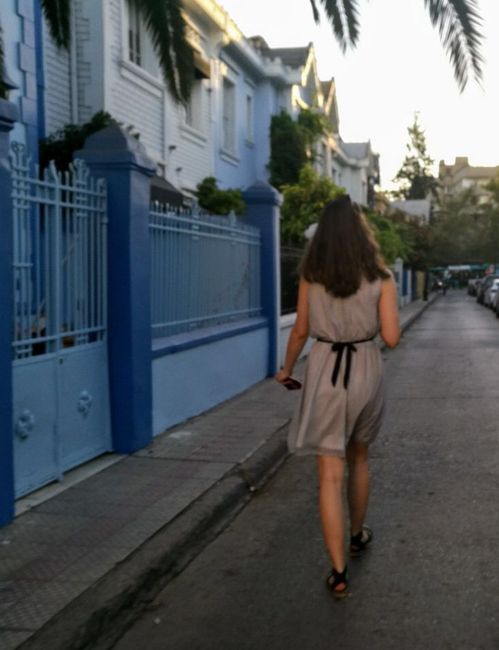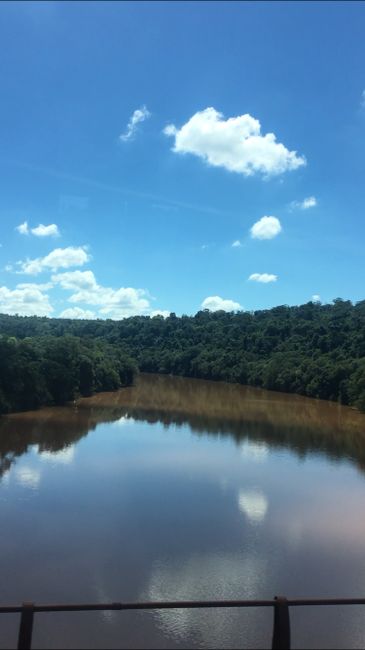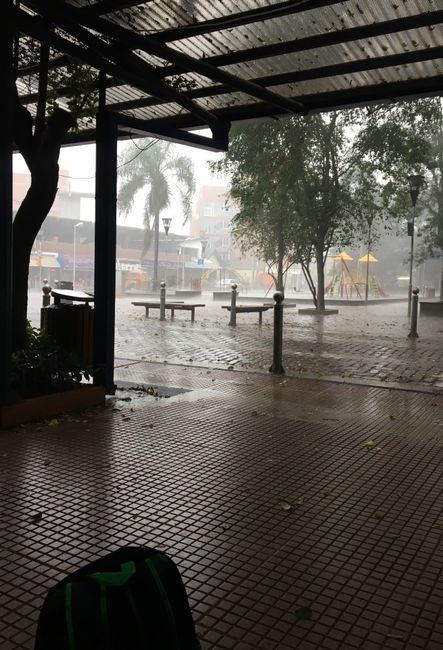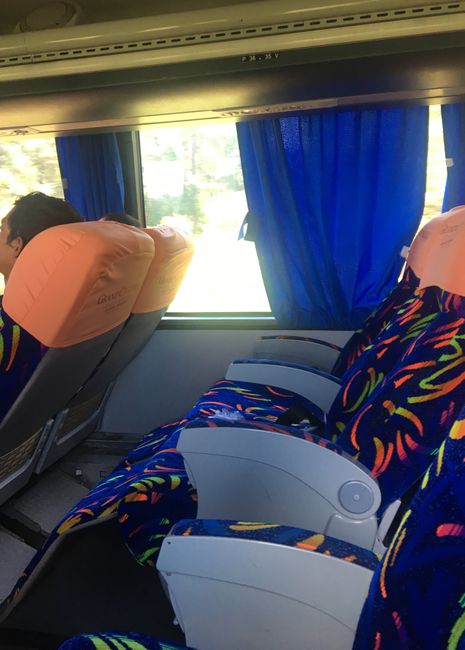2. Taking the bus to Eldorado
Birt: 18.03.2018
Gerast áskrifandi að fréttabréfi
March 17th and 18th, 18
Halli Hallo, as promised, here comes a report about my bus journey and of course about what else happened. The plan was to meet Pauline, the volunteer from Jardín, on the bus. She was supposed to let me know when her bus leaves, so that I can make my way to the bus stop from there. So far, so good. But since there is no real schedule here for when the buses leave and I still don't have a good sense of how long a bus ride from one place to another takes, like the first time, unfortunately Pauline was not on the bus I got on. But since I didn't really expect that either, I was actually quite relaxed. I knew where I had to go.
Now to the buses: here in Misiones there is Ruta 12, a major road that runs through all the towns parallel to the Paraguayan border. On this road, the buses travel from Posadas (the capital of Misiones) to Iguazu. However, these buses are completely different from ours, rather they resemble the business class on an airplane in terms of comfort. Two big seats side by side, legroom, the possibility to put your feet up, empanadas (unfortunately with meat), a soft drink, and a running movie for a total of 100 Pesos (4 Euros) for an hour's journey. Flixbus can learn a lot from that.
I have to go into more detail about the movies that are shown on the buses. The genres couldn't be more different. On the way there, "Pirates of the Caribbean" was playing, while on the way back I had the pleasure of enjoying a Latin American "comedy". For example, the plot of this film consisted of a 5-minute scene (no joke), in which all the characters were chasing a ball, constantly running into each other, and ending up with five of them in the pool. In another part of the film, an adult man rolls down a hill in a red stroller, passing through several marketplaces and naturally knocking over all the stalls, while perpetually crucifying himself. This scene was the end of the movie. That was the whole plot, and as you can see, I am thoroughly confused.
The landscape on both sides of the roads is incredibly impressive, and unfortunately, the vastness of the green cannot be properly captured in pictures.
When I arrived, the other volunteers were already waiting for me: Luis (the volunteer from Eldorado, whose height of 2 meters immediately helped me find the group. Because there is no one else that tall here), Marie (from Montecarlo), Sophia (from Resistencia), Franzi (the new volunteer in Eldorado) and Pauline (who had taken a bus before me). With a 2-liter bucket for Tereré, which is the cold version of Mate and is popular to drink here in summer, we made our way to Luis, who sublets from an older lady. While eating Gnocchi and Ensalada, the "older" volunteers told stories about their previous experiences, and sometimes my jaw really dropped.
The relationship between immigrants and the indigenous population here is more than interesting. Or rather, the displacement of the existence of the latter in every way. For example, I could see how the Guaraní (the indigenous people here in Misiones) get on the buses on the outskirts of the city and not like everyone else at the bus terminal in the city center. Another story comes from Marie, whose cleaning lady has German ancestors and still speaks a bit of German. She likes to complain about the Guaraní and how many problems they cause for them, conveniently forgetting which population group joined which one here.
The image of Germany here is very rosy and has little to do with reality. And yet, many people feel drawn to a country they have often never been to, barely speak the language, and that does not actually exist as they imagine it. Another example of this is the man I went with my host mother to exchange money with the day before yesterday, who explained his origin to me in very broken German as follows: "my great-grandparents come from Austria and Germany, the others from Germany. My blood actually doesn't belong here and is just dirt". It's crazy what things are considered "German" and "normal" here, which would never fly in Germany.
I explain this with what I know so far about the history up here in the north (no guarantee for correctness): many towns here are still very "new", but already around 100 years old and were founded by immigrants from Switzerland, Austria, and especially Germany. Often even before World War II. The post-war period, which led to such major changes in terms of culture and language in Germany (certain taboos, etc.), had little influence on the image of Germany here. That's why many people here have a completely different approach to language, also when it comes to Germany, which often seems very strange to us volunteers.
I will definitely go into more detail about this at some point, but for now, let's move on to a lighter topic: the weather! A very rich conversation topic. Just before we devoured 6 liters of ice cream in front of the ice cream parlor in scorching 33 degrees Celsius, it suddenly became dark and windy. The leaves and branches flew around like in autumn. Following the advice of the experienced volunteers, we didn't head home, but instead took shelter under the nearest awning, just as it started pouring down. I think this weather change lasted only 5 minutes in total. What came down from the sky was real masses of water, but well, somewhere it has to come from all the green! It's fascinating to observe how well prepared people are here: under our roof, a group of about 16-year-old boys on bicycles stopped. They took plastic bags out of their backpacks, wrapped their valuables in them, and put them back in their backpacks. Then they continued with a roar, out into the rain.
Before going home, Luis showed us the Fundación in Eldorado, where, for example, the German teachers in the area are trained.
Today
there is not much on the agenda, as you can probably tell by the length of
the text. But this afternoon, my host mother wanted to take me to Puerto Rico, where I will also be working, so that I can see it already! And then tomorrow it's the first time here in Capioví at the school. I will report;)
Gerast áskrifandi að fréttabréfi
Svaraðu
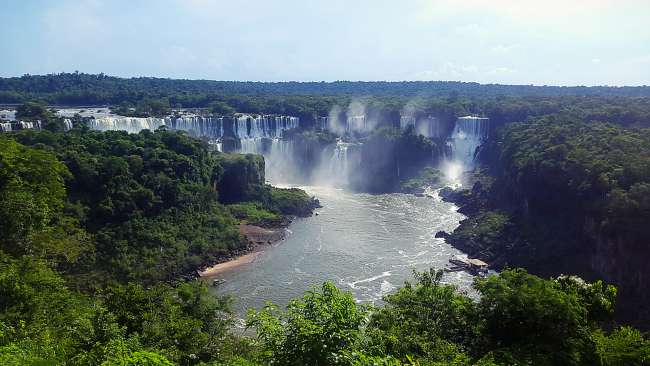
Ferðaskýrslur Argentína

